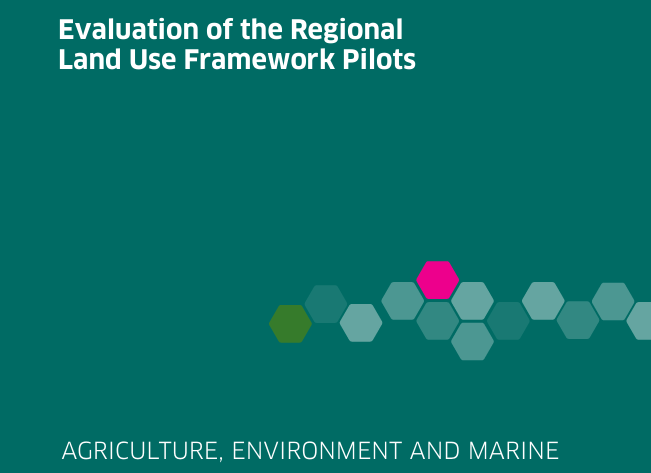In 2013, the Scottish Government established two regional land use framework pilot projects to test the practicality of preparing regional land use frameworks as a means of guiding ‘local’ decision making. The aim of the project was to:
‘pilot a mechanism which considers existing and future land uses in a collective and integrated way, and to establish a means to prioritise or guide decisions so as to optimise the use of the land, and to resolve competition or conflicts relating to land use change’.
The pilots were established in Aberdeenshire and the Scottish Borders and led by the respective local authorities. The development of each pilot was guided by a three-stage programme specification (provided by the Scottish Government) but were allowed to develop an approach which best reflected their local circumstances. The pilot projects concluded in March 2015.
How we delivered the project
Each stage of the pilots’ development was subject to external evaluation. Evaluation research focused on an assessment of the processes followed in the development and management of the pilots and their final outputs. The evaluation did not seek to identify a ‘right’ or ‘wrong’ way to deliver a regional framework. Rather the aim was to learn from how two projects, with different local circumstances, might approach the challenges posed by their brief.
Evaluation activity included desk-based assessments of project outputs and a series of facilitated workshops and interviews with project stakeholders and project teams.
Summary of key findings
The evaluation found that:
- The pilots found the scope of the project brief to be extremely challenging owing to the complexity of the issues, stakeholder sensitivities and the required timescale of production.
- Both pilots were concerned that the projects might be perceived as attempting to impose land use decisions upon local stakeholders. In response, both focused on the development of tools designed to improve local/regional land use decision-making and ensured that this focus was clearly communicated to stakeholders.
- Stakeholder engagement posed some challenges for the pilots owing to the large number of stakeholders and the resource demands associated with engagement activity.
- Some stakeholder groups were identified as being under-represented, including recreation, health, farming, tourism and non-land management rural businesses.
- There was evidence from both pilots that the projects had generated benefits for participants, most notably in the form of new and improved relations between organisations who had not previously collaborated on land management issues. There was also some evidence that the pilots will generate future benefits.
- The concept of a more regional approach to land use decision-making was welcomed and endorsed by stakeholders. There was though some uncertainty as to the most effective spatial area for an ecosystem led approach and both pilots indicated that there was a need to be able to accommodate a multi-scale approach.
- There was evidence of cautious optimism that the pilots have the potential to generate beneficial impact, tempered with caution that much more development work is required and that great care is needed on how the frameworks are developed.
The final evaluation report can be accessed here
For further details regarding this project please contact Bill Kirkup, bk@cagconsult.co.uk

